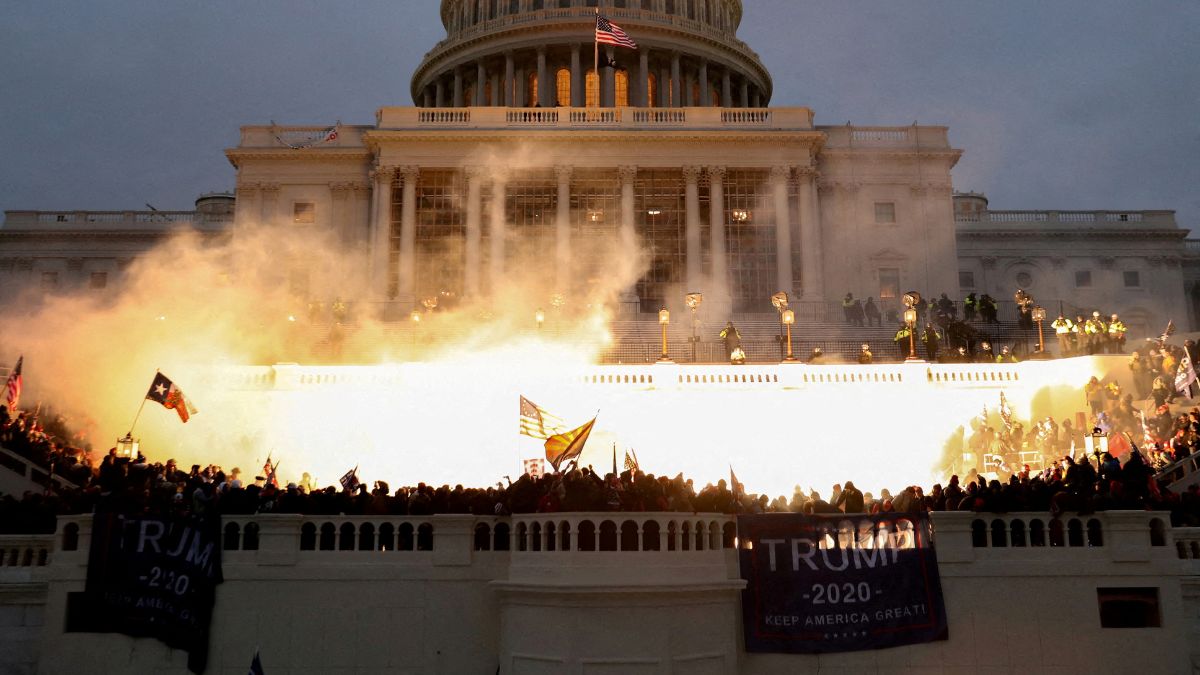Looking back, January 6 has witnessed events that have left an indelible mark on human history.
As part of Firstpost’s ongoing series, ‘History Today’ , we delve into defining moments of this day and their impact on the world.
US Capitol riots
One of the most consequential and shocking events in recent American history unfolded on this day in 2021. Thousands of supporters of then-US President Donald Trump stormed the United States Capitol in Washington, D.C., in an unprecedented attempt to disrupt the certification of Joe Biden’s victory in the 2020 presidential election.
The mob breached police barricades, smashed windows, and ransacked offices within the Capitol, forcing lawmakers to evacuate or shelter in place. Five people died during the chaos, and hundreds were injured, including law enforcement officers.
The event sent shockwaves around the world, highlighting deep political divisions within the United States and raising concerns about the fragility of democratic processes.
The aftermath of the riot saw an unprecedented second impeachment of then-US President Trump by the House of Representatives and a massive federal investigation that led to charges against hundreds of individuals .
US Congress certifies George W Bush as president
On January 6, 2001, the US Congress formally certified George W Bush as the winner of the 2000 presidential election after a contentious legal battle that culminated in a Supreme Court decision.
The election saw one of the closest and most disputed outcomes in US history, with the state of Florida’s electoral votes ultimately determining the winner.
This certification ended weeks of uncertainty and set the stage for Bush’s presidency, which would be defined by key events such as the September 11 attacks and the Iraq War.
Great Britain recognises the People’s Republic of China
On January 6, 1950, Great Britain officially announced its recognition of the People’s Republic of China (PRC), making it one of the first major Western nations to do so. This marked a significant moment in international diplomacy following the Chinese Civil War, which ended with the PRC’s establishment in 1949 under Communist leader Mao Zedong.
While Britain’s recognition was primarily pragmatic — aimed at maintaining diplomatic and trade relations — it highlighted the complexities of Cold War geopolitics as many Western nations continued to support the Republic of China (Taiwan).
Birth of Joan of Arc
January 6, 1412, is widely believed to be the birth date of Joan of Arc, the “Maid of Orléans” and one of history’s most celebrated heroines. A peasant girl turned military leader, Joan played a pivotal role in the Hundred Years’ War, leading French forces to several key victories against the English.
Captured in 1430 and later executed for heresy, Joan of Arc was canonised as a saint by the Catholic Church in 1920. Her life and legacy continue to inspire people worldwide as a symbol of courage, faith, and resilience.
First transmission of Morse Code
On January 6, 1838, Samuel Morse successfully demonstrated the telegraph system for the first time in Morristown, New Jersey, sending the message, “A patient waiter is no loser.” This marked the beginning of a communications revolution that would transform how people connected across vast distances.
The Epiphany and global religious traditions
January 6 is also celebrated as the Epiphany in Christian traditions, commemorating the visit of the Magi (Three Wise Men) to the infant Jesus. Observed in various cultures around the world, the day is marked by special church services, feasts, and customs such as the blessing of homes in parts of Europe and Latin America.
In Spain and many Latin American countries, Epiphany is known as Día de los Reyes (Three Kings’ Day) and is celebrated with parades and the exchange of gifts, reflecting its cultural and spiritual significance.
This day, that year
1852: Louis Braille, inventor of the Braille reading and writing system for the visually impaired, passed away.
1913: Loretta Young, Academy Award-winning American actress, was born.
1919: Theodore Roosevelt , 26th President of the United States and Nobel Peace Prize laureate, passed away at the age of 60.
1925: John DeLorean, American engineer and founder of the DeLorean Motor Company, was born.
1966: AR Rahman, Indian composer, singer, and music producer celebrated globally for his contributions to film and world music, was born.
)